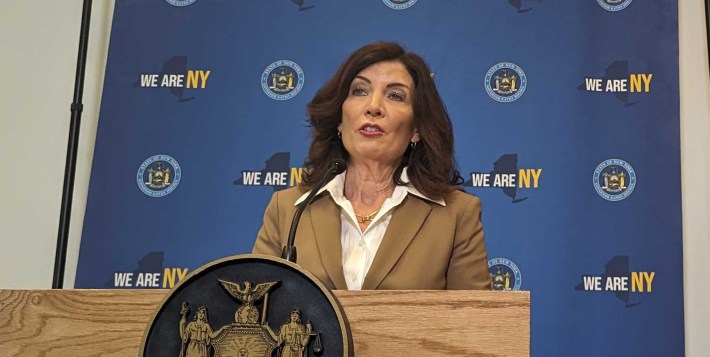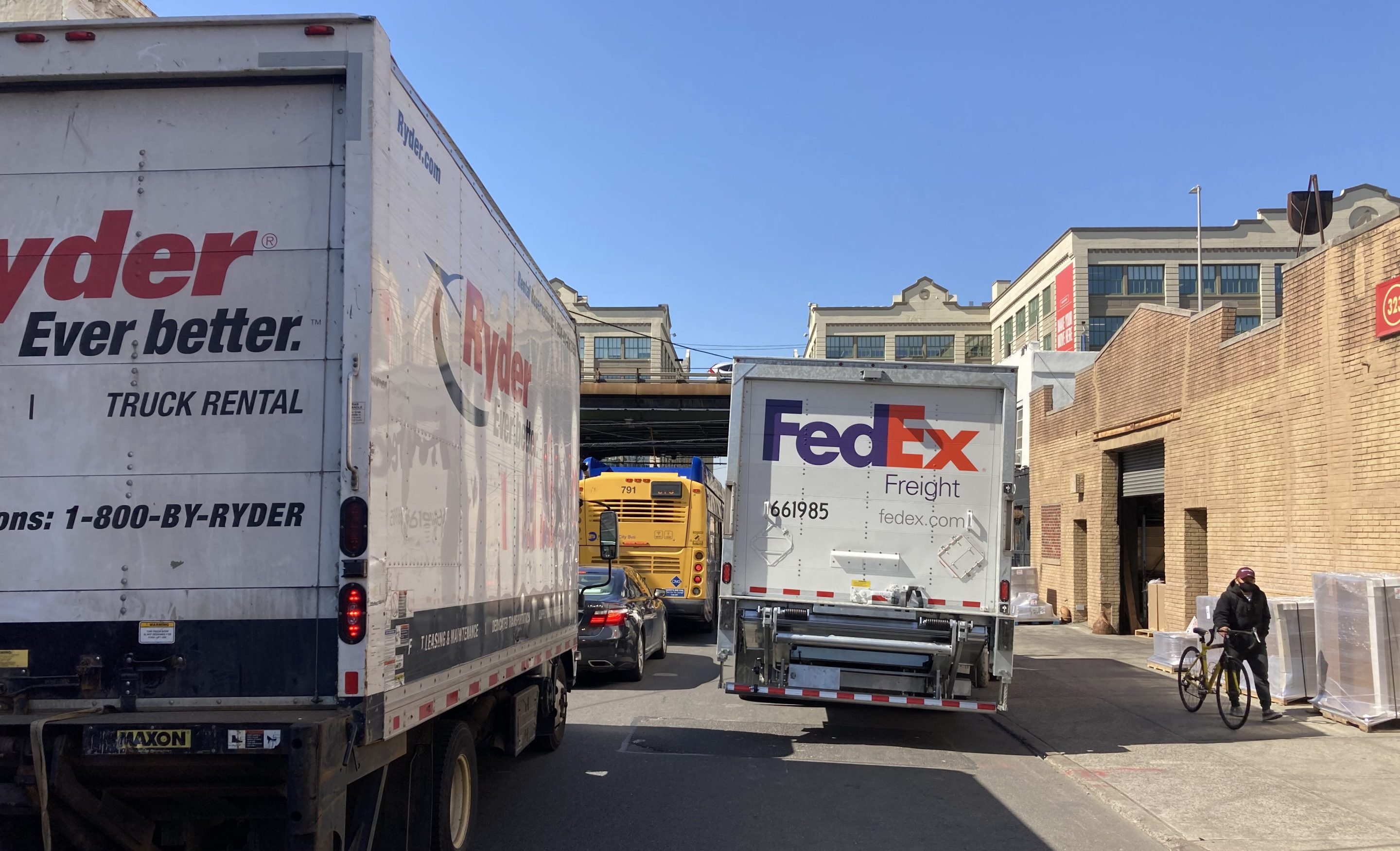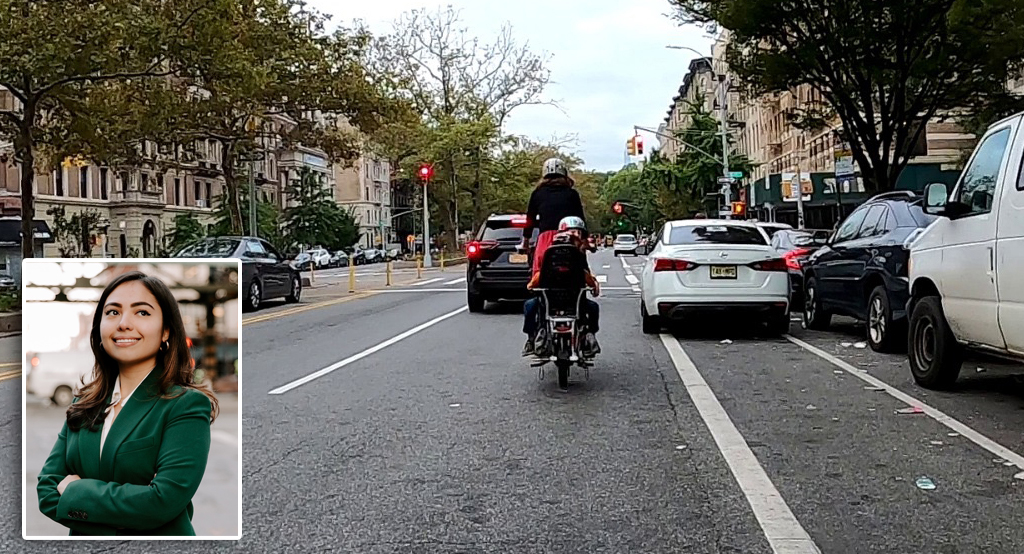Millions of New Yorkers are breathing dangerously polluted air. As more e-commerce warehouses are built up and down the state, dirty diesel trucks take millions more trips through our neighborhoods 24 hours a day, 365 days a year. With each truck that rumbles through our communities, families are exposed to unsafe levels of diesel soot and tailpipe pollution.
In 2021, recognizing the serious urgency of cleaning up this deadly pollution, New York adopted the Advanced Clean Trucks standard. This pollution reduction program sets gradual and feasible electric truck sales targets to help support the transition to clean trucks.
Implementing the ACT and getting cleaner trucks on the road is a vital step towards protecting the health of our communities. Diesel soot is extremely harmful to human health and can cause asthma attacks, lung disease and cancer. While air pollution affects everyone, communities experience it at different levels; low-income communities of color are disproportionately exposed to truck pollution. In neighborhoods like the South Bronx — where 40% of residents live below the poverty line and 95% identify as Hispanic or Black — over 15,000 diesel trucks are spewing dangerous pollution in the community every day. As a result, emergency asthma hospitalizations in the area were more than twice the rate of the rest of New York City. Right now, it’s no exaggeration to say New Yorkers’ lives are being cut short because of polluting trucks passing through our communities.
If implemented on schedule, the ACT standard, combined with the Low NOx Heavy-Duty Omnibus, a cleaner diesel truck standard, is estimated to avoid over 500 premature deaths and prevent over 350,000 cases of illness like exacerbated asthma or acute bronchitis. The monetized health benefits of the standards are estimated to be over $2.77 billion through 2050. Delaying the implementation of any clean truck rule will likely result in the state losing hundreds of millions in health benefits and lead to additional air pollution-caused deaths. Rolling back life-saving climate action will only exacerbate the harms of transportation pollution in New York’s disadvantaged communities and cost the state millions of dollars.

Despite the overwhelming benefits of clean trucks, fossil fuel interests are attacking the implementation of the ACT standard. This is part of a broader national campaign to roll back clean truck standards everywhere possible. At every step of the ACT process, industry leaders have been incorporated and, in a few cases, given concessions in the clean truck rules — but despite the ample flexibilities in the regulation, truck manufacturers are using underhanded tactics to try to undermine it further. The health of New Yorkers and the future of our climate are more important than industry bad actors manufactured compliance crisis. Besides, with ample time and buy-in there’s no reason manufacturers can’t comply with the clean truck standards on time.
Earlier this fall at the UN Climate Summit Gov. Hochul emphasized the importance of climate action to “safeguard our natural environment but also our most vulnerable communities. The ones most endangered by climate change.” It’s past time for our state’s leadership to put this into action. Implementing clean truck rules is a clear way for the governor to start to fulfill this commitment to frontline communities. If we allow fossil fuel interests to strong arm their way out of common-sense, life-saving regulations we’re only going to see worse heat waves, wildfire smoke and crushing air pollution.
In a year that’s been marked by short-sighted climate rollbacks, Gov. Hochul has a chance to preserve climate action that has already been taken by the state and make meaningful strides toward cutting some of the most harmful pollution in our communities. The standard is flexible and feasible allowing manufacturers many avenues to comply, and more importantly, the standard is necessary to save lives and begin to meet New York’s climate goals.
We can’t wait any longer for clean air. Gov. Hochul needs to listen to New Yorkers and stay the course, not cave to out of state corporations who are only looking out for their profits. We have to use every tool available to protect the air we breathe — the ACT is a strong start.






